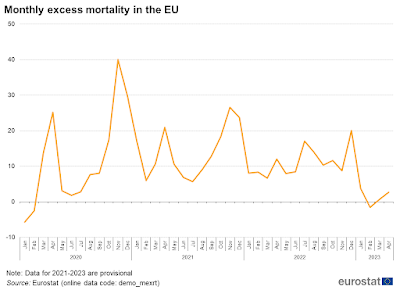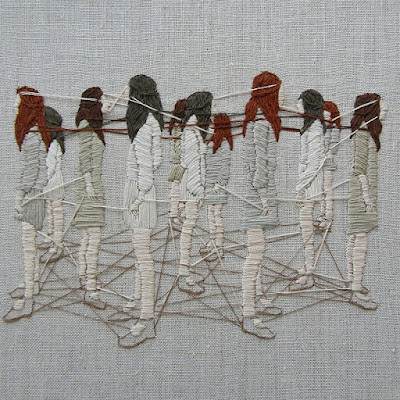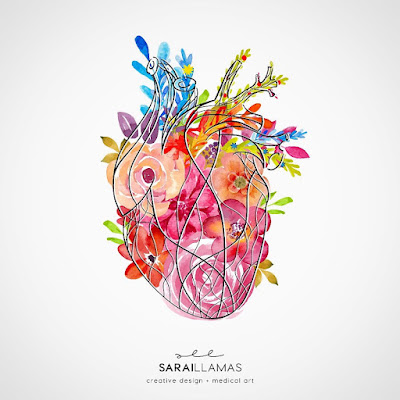Al hipercapitalismo no le gustan los duelos. Hace valer hasta el extremo el antiguo dicho “el muerto al hoyo y el vivo al bollo”. Y para ello no duda en usar todas las armas de distracción masiva que posee. Pero la realidad es tozuda y los hechos son los hechos, la pandemia por Covid ha matado a millones de personas de forma directa e indirecta. Hay registros públicos de 5 millones de muertos, la OMS calcula que tres veces más, y un servidor se atreve a pronosticar una cifra muchísimo más alta. Lo cierto es que todas las familias han sufrido los efectos de la pandemia y han tenido que lamentar víctimas entre sus miembros o en su círculo de vecinos o amigos. A lo que se añade los casos superados tanto de covid agudo como de covid prolongado, muchos millones de afectados.
A nivel social no hemos conseguido hacer un proceso de duelo en condiciones. Hemos sido testigos del manejo político de la pandemia, primero con puño de hierro, luego con mano de seda. Basta mirar a los países occidentales primero y a China después y como se pasó de una situación de emergencia a otra de normalidad total de un día para otro a conveniencia del poder ejecutivo de turno. Y es que la economía sigue siendo quien maneja los hilos, las paradas como decíamos al inicio no son bien toleradas por una industria y un comercio que toleran mal los descensos de beneficios.
De este modo, como si de un pase de magia se tratara, nos han cambiado la situación mundial de una terrible apocalipsis a un mundo de color y fantasía en el que lo pasado pasado y vivamos el presente. El problema es que tenemos encima un buen montón de muertos, y aunque se muchos se empeñen, a los muertos propios es difícil taparles la boca. Están demasiado presentes.
Como médico de familia he vivido la pandemia en primera línea, y además de sufrir los casos familiares y personales cercanos he tenido muchos más por causa de mi trabajo. Mucho más sufrimiento, muchos más muertos. Sin embargo el duelo que hemos podido hacer los sanitarios no dista mucho del que ha hecho el resto de la sociedad. En lugar de llorar en condiciones o procesar la pérdida, hemos seguido trabajando a destajo y mirando hacia delante. Quién ha podido, claro está, los casos de burnout, enfermedades físicas y mentales se han incrementado como nunca. Pese a la falta de transparencia basta darse una vuelta por los centros de salud de Madrid y preguntar cuántos facultativos faltan…
Ser testigos del colapso del sistema sanitario durante las sucesivas olas pandémicas ha sido algo muy duro para muchos profesionales que creíamos en la estabilidad y solidez de la organización. La mala gestión inicial, la insuficiente reserva funcional de la Atención Primaria, los sistemas de urgencia o de las Unidades de Cuidados Intensivos, han elevado la presión al límite sobre los que sostenían dichos servicios. Y no ha sido agradable, muchos profesionales hemos tocado fondo y quién más y quién menos se ha llevado la correspondiente herida o quemadura.
En Madrid tuvimos además que padecer la gestión sanitaria marca de la casa. A poco de salir de la última ola a los responsables les da por desmantelar las urgencias de Atención Primaria, y efectivamente consiguen cargarse por completo el servicio. Cómo sería la indignación que esto provocó una huelga de pediatras y médicos de familia de cuatro meses, en lo que ha sido quizá una torpe manera de hacer el duelo pandémico para los facultativos capitalinos que vimos como el sueldo de varias nóminas se reducía con fruición. No lo damos por malo, a base de gritar, manifestarnos por la Gran Vía, corear consignas y verbalizar lo que pensábamos de tirios y troyanos nos ha salido caro pero nos ha ayudado a manifestar el profundo malestar y dolor de los que vimos qué fácil es pasar de los aplausos de balcón a la incomprensión pública y a la desidia del político.
En otros lugares no ha sido así, cada cual ha hecho lo que ha podido. Lo cierto es que seguimos adelante sin haber aprendido todas las lecciones. Seguimos sin tener información epidemiológica de calidad. Seguimos sin saber que utilidad real tienen las medidas de aislamiento social, mascarillas y demás. Seguimos sin saber cómo evitar otras pandemias. Seguimos sin saber cómo mejorar los sistemas sanitarios.
Y por supuesto seguimos sin saber cómo mejorar los duelos sociales. Un compañero preguntaba estos días cómo podría ser un símbolo público que expresara el luto por el Covid, al modo del pañuelo blanco de las madres de la plaza de mayo, y me parecía una cuestión interesante. Porque ha habido un luto que quizá no hemos sabido hacer de la mejor manera pese al dolor. Y hay lágrimas que hay que dejar salir, como todos sabemos.
https://www.bbc.com/mundo/noticias-61333739
https://digital.csic.es/handle/10261/266325
The pandemic is not over
Hypercapitalism does not like duels. It makes the old saying "the dead to the hole and the living to the bun" apply to the extreme. And to this end it does not hesitate to use all the weapons of mass distraction it possesses. But reality is stubborn and the facts are the facts, the Covid pandemic has killed millions of people directly and indirectly. There are public records of 5 million deaths, the WHO estimates three times that number, and I would venture to predict a much higher figure. What is certain is that every family has suffered the effects of the pandemic and has had to mourn victims among its members or in their circle of neighbours or friends. On top of this, there are many millions of people affected by both acute and prolonged covid.
On a social level, we have not managed to carry out a proper mourning process. We have witnessed the political handling of the pandemic, first with an iron fist, then with a silk hand. Just look at the Western countries first and China later and see how they went from an emergency situation to a situation of total normality from one day to the next at the convenience of the executive power of the day. And it is the economy that continues to pull the strings, and as we said at the beginning, stoppages are not well tolerated by an industry and commerce that do not tolerate drops in profits very well.
In this way, as if by magic, the world situation has changed from a terrible apocalypse to a world of colour and fantasy in which the past is the past and we live in the present. The problem is that we have a lot of dead people on top of us, and even if many of them insist, it is difficult to keep their mouths shut from their own dead. They are too present.
As a family doctor, I have lived through the pandemic on the front line, and in addition to suffering from close family and personal cases, I have had many more because of my work. Much more suffering, many more deaths. However, the mourning that we health workers have been able to do is not very different from that of the rest of society. Instead of grieving properly or processing the loss, we have continued to work hard and look forward. Who has been able to, of course, cases of burnout, physical and mental illness have increased as never before. Despite the lack of transparency it is enough to take a walk around the health centres of Madrid and ask how many doctors are missing...
Witnessing the collapse of the health system during the successive pandemic waves has been very hard for many professionals who believed in the stability and solidity of the organisation. The initial mismanagement, the insufficient functional reserve of primary care, emergency systems or intensive care units, have pushed the pressure to the limit on those who supported these services. And it has not been pleasant, many of us professionals have hit rock bottom and some of us have been hit by the corresponding pressure.
In Madrid we have also had to suffer from the house's trademark health management. Shortly after coming out of the last wave, those in charge decided to dismantle the primary care emergency services, and effectively succeeded in completely destroying the service. How outraged they were that this provoked a four-month strike by paediatricians and family doctors, in what was perhaps a clumsy way of pandemic mourning for the capital's doctors, who saw their salaries reduced with fruition. We don't take it for bad, by shouting, demonstrating along the Gran Vía, chanting slogans and verbalising what we thought of Tyrians and Trojans has cost us dearly, but it has helped us to express the deep unease and pain of those of us who saw how easy it is to go from applause on the balcony to public incomprehension and political neglect.
In other places this has not been the case, everyone has done what they could. The truth is that we are still going ahead without having learnt all the lessons. We still do not have quality epidemiological information. We still don't know how useful social isolation measures, masks and so on really are. We still do not know how to prevent other pandemics. We still do not know how to improve health systems.
And of course we still don't know how to improve social grief. A colleague asked recently what a public symbol could be to express the mourning for Covid, like the white scarf of the mothers of the Plaza de Mayo, and I thought it was an interesting question. Because there has been a mourning that perhaps we have not known how to mourn in the best way despite the pain. And there are tears that must be let out, as we all know.
https://www.bbc.com/mundo/noticias-61333739
https://digital.csic.es/handle/10261/266325
大流行病还没有结束
机器翻译,抱歉有错误。
超资本主义不喜欢决斗。它让 "死人进洞,活人进包 "这句老话发挥到了极致。为此,它毫不犹豫地使用它所拥有的所有大规模分散注意力的武器。但现实是顽固的,事实就是事实,科维德大流行病已经直接和间接地杀死了数百万人。公开记录显示有500万人死亡,世卫组织估计是这个数字的三倍,我大胆预测会有更高的数字。可以肯定的是,每个家庭都受到了这一流行病的影响,不得不在其成员中或在其邻居或朋友圈中悼念受害者。除此之外,还有数以百万计的人受到急性和长期病毒的影响。
在社会层面上,我们还没有设法进行适当的哀悼过程。我们目睹了对这一流行病的政治处理,先是用铁拳,然后是用绢手。只要看看西方国家先是,后来是中国,看看它们是如何在当时的行政权力的便利下,从一个紧急状况变成一个完全正常的状况的。而继续拉动经济的是经济,正如我们在开始时所说的,停工对于不善于容忍利润下降的工业和商业来说是不能容忍的。
这样一来,就像变魔术一样,世界局势从可怕的启示录变成了一个充满色彩和幻想的世界,在这个世界里,过去是过去,我们生活在现在。问题是,我们上面有很多死人,即使他们中的很多人坚持,也很难对自己的死人守口如瓶。他们的存在感太强了。
作为一名家庭医生,我在前线经历了这场大流行病,除了遭受近亲和个人的病例之外,我还因为我的工作而多了很多。更多的痛苦,更多的死亡。然而,我们卫生工作者所能做的哀悼,与社会上其他的人没有什么不同。我们没有适当地悲痛或处理损失,而是继续努力工作,向前看。当然,谁能做到这一点,倦怠、身体和精神疾病的案例前所未有地增加。尽管缺乏透明度,但只要在马德里的保健中心走一圈,问问有多少医生失踪就够了......
目睹卫生系统在连续的大流行病浪潮中的崩溃,对许多相信该组织的稳定性和稳固性的专业人士来说是非常艰难的。最初的管理不善,初级保健、急救系统或重症监护室的功能储备不足,已经把支持这些服务的人的压力推到了极限。这并不令人愉快,我们中的许多专业人员已经跌到了谷底,还有谁?
.
在马德里,我们也不得不遭受这所房子的标志性健康管理。在走出上一波浪潮后不久,那些负责人决定解散初级保健急救服务,并有效地成功地完全摧毁了该服务。他们是多么的愤怒,这激起了儿科医生和家庭医生为期四个月的罢工,这也许是对首都医生大流行的一种笨拙的哀悼方式,他们看到他们的工资随着成果而减少。我们不以为然,通过大喊大叫,沿着Gran Vía游行示威,高呼口号,用语言表达我们对提利尔人和特洛伊人的看法,让我们付出了沉重的代价,但它帮助我们表达了我们这些人深深的不安和痛苦,因为我们看到从阳台上的掌声到公众的不理解和政治忽视是多么容易。
在其他地方,情况并非如此,每个人都做了他们所能做的。事实是,我们仍然在没有吸取所有教训的情况下继续前进。我们仍然没有高质量的流行病学信息。我们仍然不知道社会隔离措施、口罩等到底有多大作用。我们仍然不知道如何预防其他大流行病。我们仍然不知道如何改善卫生系统。
当然,我们也仍然不知道如何改善社会的悲痛。一位同事最近问,可以用什么公共标志来表达对科维德的哀悼,就像五月广场的母亲们的白围巾一样,我认为这是一个有趣的问题。因为一直有一种哀悼,也许我们不知道如何以最好的方式哀悼,尽管有痛苦。而有些眼泪是必须要流出来的,这一点我们都知道。
https://www.bbc.com/mundo/noticias-61333739
https://digital.csic.es/handle/10261/266325



















